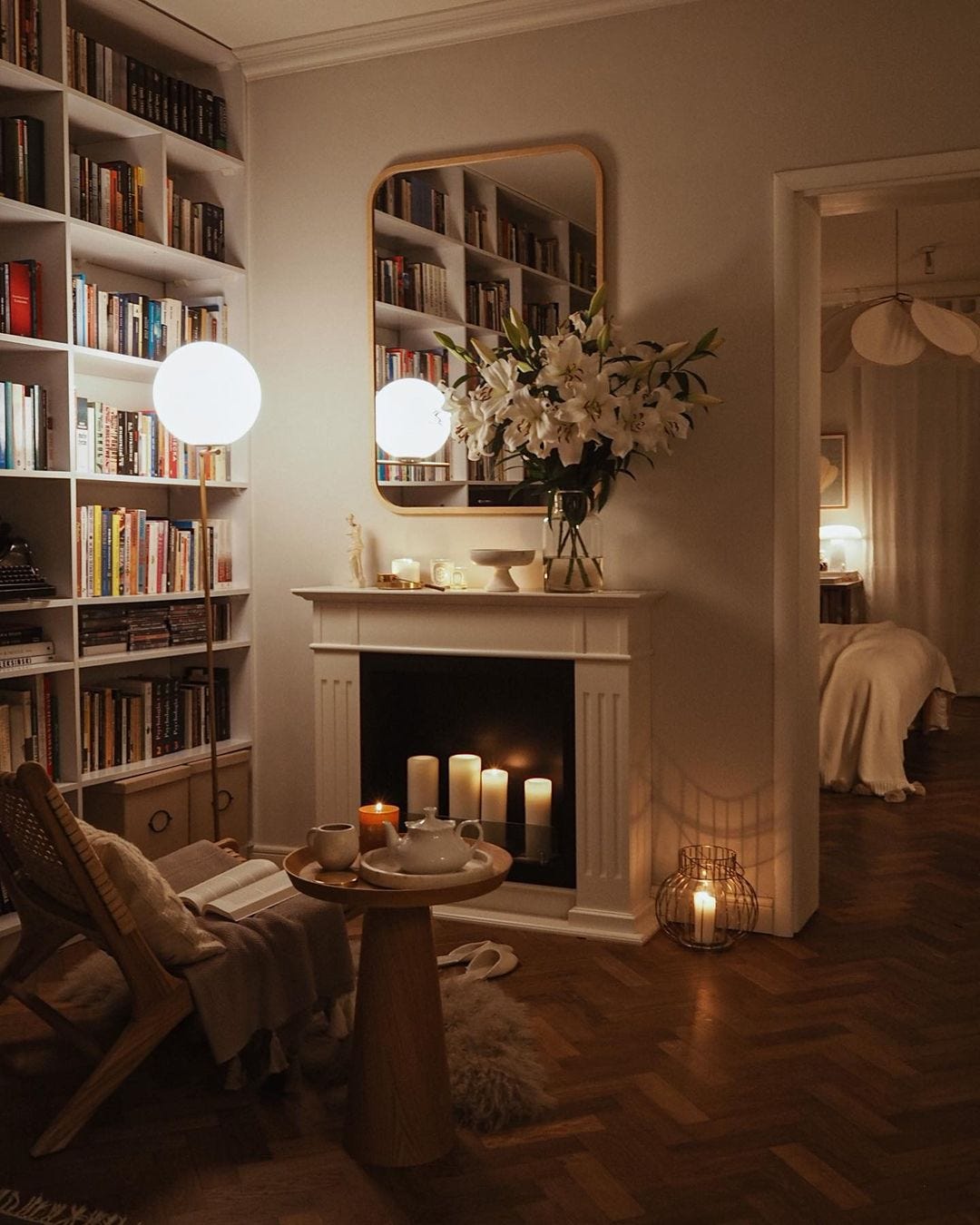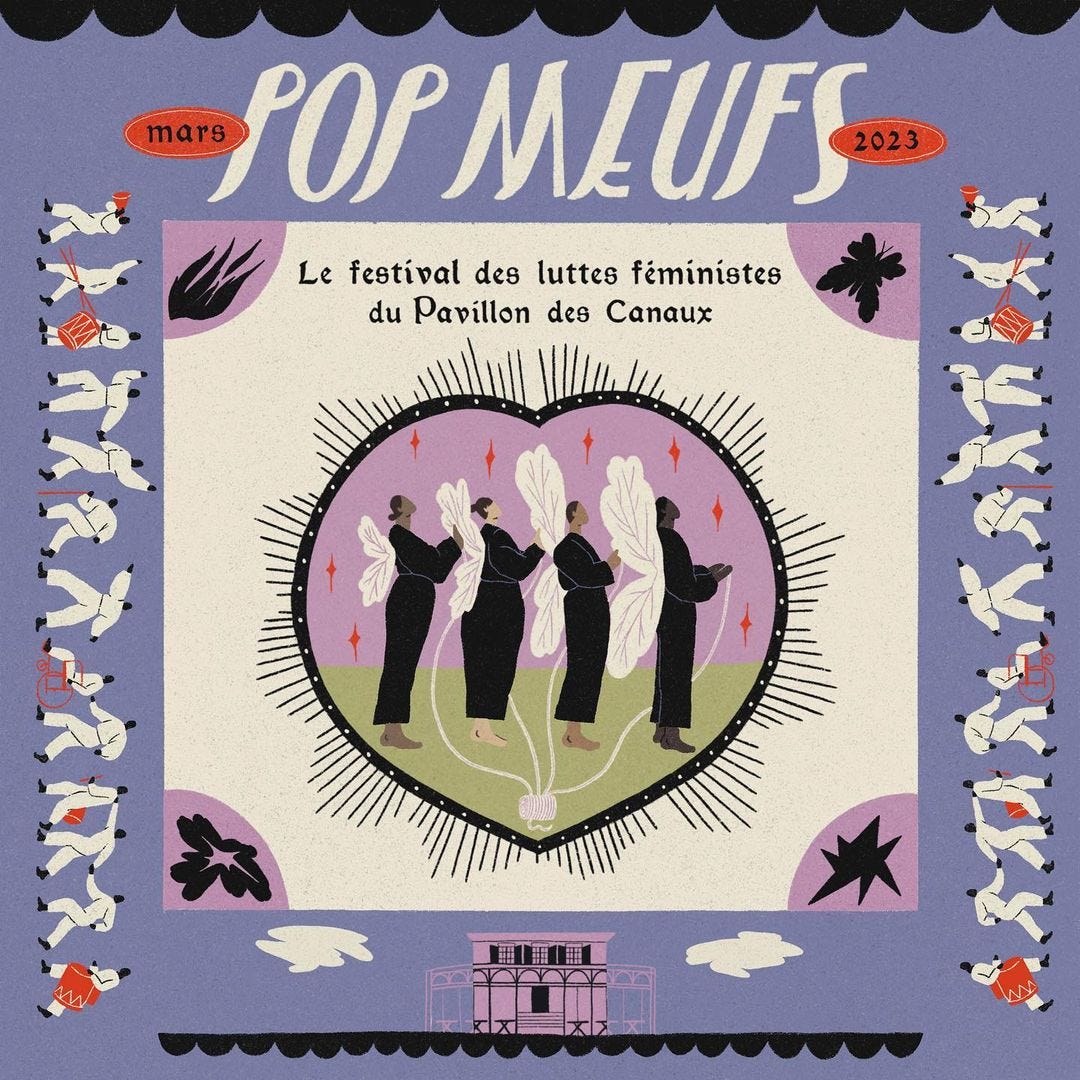We read to exist, therefore we read to resist. This is the opening line of The FBC Paris manifesto. Written in 2019, it still stands today. Our first book club session was in September 2018, which means that we have been meeting as a community for five years. I’m proud of that and thank all of you who have been a part of the ride.
Do you have a favourite FBC Paris book or moment? If so, I’d love to hear about it.
As 2024 approaches, I’m revisiting why The FBC Paris was started. Something I now understand is that the community can change from month to month, with familiar faces popping in from time to time. Such is the nature of life, with its constant demands on our time and attention. (If I don’t see you at book club, we may well run into each other at a protest, in a bookshop or at a female-owned bar).
July’s book club, for example, was delightful: everybody in the group was a newcomer, with the exception of Guillemette, who some of you have had the pleasure of meeting. We didn’t just focus on one title; instead, everybody brought one of their favourite books to discuss, which made for a very rich discussion. The recap of books can be found here.
But I’m taking some time to think about how book club can continue to be of purpose to the community, to stay fresh in its format, and to provide a safe space in which to talk about all aspects of intersectional feminism. I’d love your input…
RING THE ALARM - WE HAVE A NEW BOOK CLUB HOME
I’m pleased to announce that The FBC Paris will meet at Le Pavillon des Canaux from January 2024 onwards. We have dates locked in for January and February, on a trial basis, so let’s all be on our best behaviour.
For those of you who may not be familiar with the space, Le Pavillon des Canaux has a brilliant cultural programme, which includes an annual pop-up festival dedicated to feminist causes. Finding a like-minded meeting place that shares our values has always been high on the list of FBC Paris priorities, so this feels good. v
January’s Book Club Session
We will be reading Bad Feminist, the 2014 essay collection by Roxane Gay. It has been translated into French and is also available in e-book and audio book formats.
Why Roxane Gay? If you don’t already know of her, Roxane Gay is an American writer, professor and social commentator. She writes for the NY Times. We read Hunger together in book club and explored the issue of fatphobia. Her cooking stories on Instagram are so wholesome. She has a Substack.
For me, Roxane Gay is quite often the voice of reason when I need it. Ironically, she is someone I have classed in my head as a “good” feminist—whatever that says about me—and so, I hope you will all find something in her writing that speaks to you.
Why this book? There are so many ways to be a feminist—who gets to decide what makes a good or bad feminist? Nine years after its release, I thought it could be interesting for us to re-visit (or re-discover) Roxane Gay’s vision of “bad” feminism. To consider how we judge our own feminist actions and practices, as well as those of the people around us.
How can you read this book? I think that the essay format lends itself to a different type of reading experience. Please don’t feel obliged to read every essay. You don’t have to read the book in a linear way if you don’t want to.
Why not pick the essays that speak to you most? Why do they appeal to you at this moment in time? Make a note of any quotes that jump out at you. Share them with us at book club.
A note on The FBC Paris
If you’re new here, welcome! The FBC Paris is a passion project. Read our mission statement.
Follow us on Instagram: this is the best place to stay up-to-date with book club sessions.
Listen to the podcast: I chat to authors, translators, friends of the book club, and booksellers.
If there’s anything you’d like to see featured in the newsletter or have something to contribute, send an email to thefbcparis@gmail.com
Lou xx




